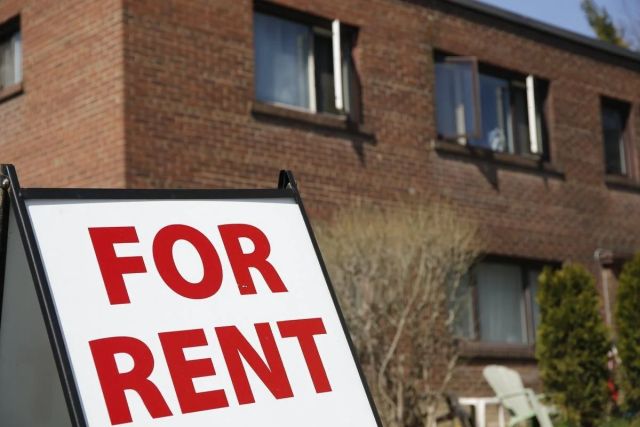
Toronto (Mar 13) – Asking rents for all residential property types in Canada averaged $2,193 in February, increasing 10.5% year-over-year — the fastest rate of annual growth since September 2023, according to a new report.
The latest data released by Rentals.ca shows that compared to two years ago in February 2022, just before the start of interest rate hikes by the Bank of Canada, average asking rents in Canada have grown by 21% or $384 per month.
Asking rents for purpose-built rental apartments were lowest by property type at an average of $2,110 in February, although increasing the most over the past year with annual growth of 14.4%, according to the report. Condominium rental apartments had average asking rents of $2,372, increasing 5.0% year-over-year, while apartments in houses averaged asking rents of $2,347, rising 5.3% annually.
Asking rents for purpose-built and condominium apartments averaged $2,146 in February, increasing 12.5% from a year earlier. As renters shifted toward more affordable housing options in February, rents grew fastest for the smallest unit types.
Studio apartments posted the strongest annual rent growth in February with a 14.8% increase, followed by 13.4% annual growth for one-bedroom apartments, 11.7% growth for two-bedroom apartments, and 9.9% growth for three-bedroom apartments.
Ontario and British Columbia posted the slowest growth in asking rents for purpose-built and condo apartments at the provincial level in February, with annual increases of just 1.0% and 1.3%, respectively. In B.C., asking rents for two-bedroom apartments declined 0.6% annually to $2,766, while one-bedroom rents increased 6.3% annually to $2,207. Ontario asking rents for one-bedroom apartments increased 2.0% from a year ago to an average of $2,221 and two-bedroom apartment rents increased 1.1% annually to $2,690.
Alberta maintained its lead as the province with the fastest growing rents, with total average asking rents for apartments up 20.0% annually in February. One-bedroom apartment asking rents in Alberta grew 20.4% to an average of $1,531, while two-bedroom apartment asking rents increased 18.8% annually to $1,886.
Saskatchewan remained the most affordable province for rents in February, despite posting the second-fastest annual increase of 15.8%. One-bedroom apartment rents in Saskatchewan rose 17.8% from a year ago to $1,187, while two-bedroom apartment rents grew 15.6% to $1,352.
Rentals.ca says Canada’s largest and most expensive cities saw asking rents decline compared to a year ago. The average asking rent for purpose-built and condo apartments decreased by 3.3% annually in Vancouver and 1.3% annually in Toronto to $3,017 and $2,803, respectively.
For the second straight month, Edmonton was the leader for rent increases among Canada’s largest cities, posting annual growth of 17.3% to reach an average of $1,489 for purpose-built and condo apartments. Calgary remained in second place with asking rents for apartments up 10.6% annually to $2,059, a slower increase compared to the 12.8% annual growth rate in January. In Montreal, annual rent growth for apartments accelerated from a 9.5% annual pace in January to a 10.1% annual pace in February, raising asking rents to an average of $2,034 for purpose-built and condo apartments.
Four out of the top five most expensive small-to-medium sized markets for purpose-built and condo apartment rents remained in B.C during February, led by North Vancouver, ($3,180), Burnaby ($2,880), Coquitlam ($2,797), and Richmond ($2,774). Richmond Hill, Ontario maintained its fifth position with an average asking rent of $2,708 for purpose-built and condo apartments, while Langley, B.C. moved into the sixth spot with an average asking rent of $2,697. The remainder of the top 10 most expensive small-to-medium sized markets were all located in the GTA.
Among the top 25 small-to-mid-sized markets for annual rent growth in February, seven were located in Quebec, six were located in Alberta, five were located in B.C, three were in Ontario, and two were in Saskatchewan. The lone Manitoba city was Winnipeg, with annual growth of 9.1%, while Halifax led Nova Scotia with annual growth of 8.6%. The fastest rising city for rents in Quebec was Pointe-Claire (+27.9%), while Lloydminster led rent growth in Alberta (+25.7%) and Langley saw the fastest rising rents in B.C. (+20.3%). Regina was the fifth fastest growing city for rents in Canada with an annual growth of 17.1%, and Waterloo represented the city with the fastest rising rents in Ontario with annual growth of 9.2%.
#




